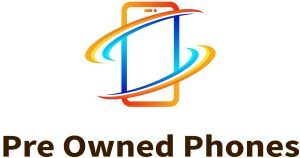Phone Sales Tips
Be Comfortable with Your Phone
A sales career that is phone-centric requires a few key characteristics. Are you not able to demonstrate the following characteristics? You can either practice until you master it or find another job.
- Enthusiasm Be open to discussing your client’s past, goals, and pain points. If you sound uninterested or bored, your prospect will notice and be less likely to share their thoughts. You can increase your enthusiasm to ensure you both are excited about finding a solution that suits their needs.
- Have patience and be ready to listen. Do not rush your prospect through the conversation. You never know when a tangent will lead to valuable insights that can help you close. You should be firm but flexible in your direction and allow the prospect to speak freely.
- Passion: You can’t expect anyone to love what you are talking about. Selling is only possible if you have passion. Selling software, cars or service packages is not something that many people are passionate about. We need to find an angle that makes us happy. Your software can help users get promoted or give them more time to spend with their families. That’s something you should be passionate about. You can inspire others by telling a story that motivates or inspires you.
- Feel confident. Share your opinions. Everybody, including prospects, wants honesty. Tell prospects if you feel they might not be a good match for your product/service. Tell prospects if you don’t have the feature they want. Be open about it. Offer solutions or roadmaps to show that you are proactive in thinking about how you can make it happen. Be confident and assertive in your call.
- Have a sense of humour: Don’t make your sales calls too seriously. Let your prospect have some fun and relax. Try telling a trusted joke (“Want to hear about a piece of paper joke?” It’s not so bad, it’s tearable.”) Or self-deprecating humour. But break the ice, and you’ll find it much easier to press for the next steps.
Make sure you are prepared.
- Do not dial the phone without prepping. Before making your first or 400th call, here are some things to do.
- Identify your purpose. Think about what you want to accomplish during this call and how you will get there.
- Ask questions ahead of time: Which questions are you required to reach your goal?
- Brainstorm Answers: What will be your prospect’s likely answers to your questions? These are the questions you should anticipate and be prepared to answer.
- Practice You can pitch a new product or repeat the same pitch 100 times. Check-in every few months to check how you are doing. To improve your demo, record yourself giving a practice presentation.
- Visualize. Please take a photo of your caller (or another person) and pretend you are talking to them on the phone. Does this sound creepy? Maybe. It might help you to speak to the voice at the end like they are a real person. Absolutely.
- Look at the part: Would the caller be confident if they saw you? You will project that confidence over the phone if you don’t. Your caller will notice if you dress in a way that makes them feel good.
Relaxed Voice
- It’s easy to sense when someone is smiling on the phone. This is not a figment of your imagination. A smile can change the tone of your voice, and it will reassure the listener by creating a higher frequency in the mouth.
- Record a sentence in your non-smiling voice to practice this technique. You can then record the same words with a smile to see the difference.
- Using your most powerful voice tools, you can also achieve a relaxed, persuasive tone. Here’s how:
- Talk at a slow pace. Your listener may get bored or frustrated if you speak too slowly. Talk too fast, and they might misunderstand. Expert callers will mimic the pace of the person they are speaking to. Remember that it takes between 10 and 30 seconds for a new voice to adapt to you, so allow your listener to adjust before getting into the most important part.
- Volume A long, high-pitched voice says, “I don’t believe what I’m hearing,” whereas a slow, low-pitched voice says, “I want my privacy”. A high volume will tell your listener that you are enthusiastic. Avoid sounding abrupt and loud, as this will make your listener feel angry and closed to discussion.
- Tone Do not apologize for interrupting your call. It sounds like you are doing something wrong, which is not the case. Instead, pretend that you are doing your listener favours by answering the call.
- Clarity: Make sure you are clear and concise about what you emphasize in your presentation. Think about the meaning of a sentence, and consider how important each word’s stress can be.
Get your listener to believe.
- Knowing your physical cues and how they impact your prospect is key to successful professional calls. These are some things you should be aware of:
-
- Body language It is natural to use your hands while speaking, and it’s a good thing. You can increase your vocal range by gesturing more. Your calls will sound natural and conversational if you have a greater vocal range. Only 7% of messages can be transmitted using words. 38% of a message is transmitted by how words are spoken, and 55% by body language. Headsets can be a great way for you to let your hands do the talking while on a call.
- Nonverbal communication: You can influence and encourage your listener by using non-verbal sounds such as laughter, sighs and gasps. As we have already mentioned, focusing on or stressing specific words can also affect the reception of your listener.
-
Use your Call Scripts Successfully
- Call scripts exist for a reason. You can practice with them but remember these things before answering a call.
-
-
- Stop using cliches: Avoid common sales phrases such as “game-changer,” par for the course”, and “win-win”. These sales phrases will make your prospect turn off. Use conversational language that you would use with a friend or colleague to communicate with your prospect.
- Edit You can edit a script given to you to match your natural vocabulary and style of speaking.
- Do not read it aloud: Many salespeople use scripts but don’t read them. It will make you sound more natural and help you communicate your ideas.
-
-
Be a good listener
- It’s easier said than done. Salespeople often ask too many questions and give prospects little time to answer.
- Some people ask too many questions and give solutions without truly understanding the prospect’s use case. These tips help you be a great listener and get your prospect.
-
-
-
- Do not interrupt: Face-to-face, we use non-verbal cues such as shifting our bodies, opening our mouths and nodding to let others know we have something to say. These non-verbal cues won’t be available over the phone. However, this doesn’t mean that you shouldn’t interrupt. To avoid being rude or impatient, you should keep your thoughts in check until there is a natural break in conversation.
- Let people know you’re listening. Reflective listening can be as simple as adding “yes,” hmm,” or “I see” to your listening. These phrases should not be overwhelming for the speaker. Add them to the conversation to let your prospect know that you are on the same page.
-
-
-
Enjoy Great Timing
- Outreach should be conducted between 8:00 AM and 10:00 AM and between 4:00 PM and 5:00 PM. Calling someone on Tuesdays between 11:00 AM and 2:00 PM is the worst.
- Timing can also be a tool to gain an advantage over your competitors. You know when they call prospects between 9:00 AM and 5:00 PM. To stand out and reach high-level prospects, you might try calling them outside this time frame.

